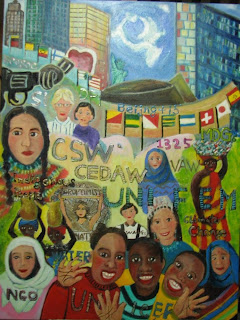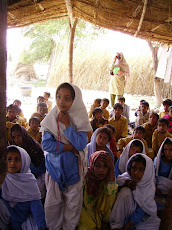The sun has been shining brightly in Brisbane (Queensland, Australia) for the past few days and the river levels have dropped. This has assisted greatly in trying to get things cleaned up and help people to get back into their homes/ businesses.
Some areas are still without power and it is likely that it will take several weeks before the lines can be rebuilt. Roads are starting to reopen however there will be a lot of work to repair the damage caused by the floods. Public transport is slowly reconnecting and most of us that work in the inner city should be able to get back to work on Monday.
Some people will have no jobs to return to though and this will be a big problem in how these families survive over the coming months/year in trying to pay their bills and keep a roof over their head. Families have lost their cars, homes and all their possessions but the outpouring of support from ordinary people within the community to help each other has been overwhelming. People have opened their hearts and their homes to strangers and are sharing everything they can.
I am sure that you have seen some of the personal stories of survival and also the sad stories of those that have lost their loved ones – many tears have been shed just realising how hard it is going to be for these people to overcome their loss and grief. Support personnel and counsellors are being made available to assist these people and there are also others that have not been personally impacted by the floods but have been traumatised by what they have been watching.
Our new school year starts in a couple of weeks and there will be a lot of work to be done to clean the schools and get them ready – this may be an area where some of our SI support can be directed but we will have to wait to identify the needs and where our SI assistance can best be utilised. As mentioned previously our SISWP President Yvonne Simpson has a special appeal that clubs / federations can support. Once things settled down a little, our SI Clubs will be able to identify specific projects and we will keep you all informed however monies can still be forwarded to our SISWP HQ or Federation Offices.
It will take a long time for people to recover from these floods - especially our industry and businesses. Food supplies are being flown in to remote and rural areas around Queensland by our defence forces and now that the main highway between Brisbane and Cairns has reopened, food and other supplies via trucks will commence bringing in more supplies. It is really hard to believe that over 75% of Queensland has been impacted by these floods in one form or another.
The use of social networks like facebook, twitter, SMS and mobile phones has helped to keep people in touch with loved ones and to keep them updated on what is happening. Local radio stations have also been very helpful in relaying messages from people who have been isolated without power but still have mobile phone access and battery radios. Basic things like battery operated radios are probably one of the most useful items in a crisis such as this as it can provide much needed information about the weather and where help is available.
I know that many of you will have seen lots of pictures and media coverage of the floods however there are some great photo’s posted on this webpage of the floods and also the recovery efforts – if you scroll down on this site you will see a man in a boat filled with small wallabies (similar to kangaroos). They all look very comfortable with each other – the bonds of all living things hoping to survive perhaps. http://www.boston.com/bigpicture/2011/01/australian_flooding.html
Help is also being provided throughout Australia to support other areas affected by bushfires and floods and many charity organisations are at the front line providing food, clothing, shelter, counselling and support – I have no doubt that our SI Australia members will be there lending a helping hand wherever they can.
Simple things like getting daily mail delivered will be virtually impossible for many people for a while and those that had to flee their homes in a hurry do not have their credit cards or banking cards to be able to access funds (assuming that they had savings in the bank). Trying to gather all their personal documents (ID) etc will also take some time and involve many organisations so it is probably a good reminder that we should all keep a copy of important documents and details in another location other than our homes in case of emergencies like this.
We have also seen the devastating impact of flooding in Brazil and Sri Lanka – so many more lives have been lost and many more families displaced – they will require a lot of support from the global community. I hope that our Soroptimist members in these countries are safe. It really does personalise these tragedies so much more when you have family and friends in these parts of the world.
I guess to sum it all up - there is a beautiful quote from a speech by Robert Kennedy that was written by in 1966 as part of his Rebuilding a Sense of Community – it is one that I have used often and really seems to be appropriate now in how our community is responding to this emergency.
“It is not bigness that should be our goal. We must attempt, rather, to bring people back to... the warmth of community, to the worth of individual effort and responsibility ... and of individuals working together as a community, to better their lives and their children’s future”.
Often many people in our society feel quite isolated and alone and it is situations like this that bring out the best in our human spirit – for those that need help, it is at hand, for those that have not had a chance to get involved in their community – they now can. People will make life- long friends as they help each other through these difficult times and as a community / global society we can only hope to be better prepared in the future to respond to such emergencies.
These floods were a natural disaster and one that we will recover from in time. As I visited Sierra Leone last year and the many people from Sierra Leone that I have met since returning home it really brought home to me how difficult it is for people who have had to flee their country because of civil war / conflict and try to make a new life in another country after spending years in refugee camps. Some of the media were using the term “refugees” during the peak of the flood crisis to describe the situation here in Brisbane but it cannot compare to what our refugees have suffered around the world and the many millions that are still living in appalling conditions when they have been forced to leave their countries with little hope of ever returning.
I am very proud to be a Soroptimist and to belong to an organisation that extends its support to people all around the world in times of crisis and in times of plenty.
Chris Knight, SI Moreton North Inc.














